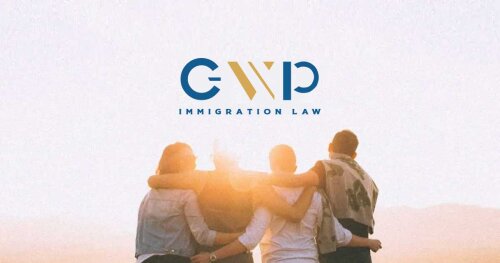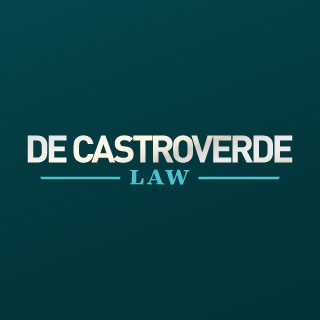Best Business Visa Lawyers in Las Vegas
Share your needs with us, get contacted by law firms.
Free. Takes 2 min.
List of the best lawyers in Las Vegas, United States
About Business Visa Law in Las Vegas, United States
Immigration and visa law for business visitors in Las Vegas is governed primarily by federal law. The most common nonimmigrant categories used for business activity are the B-1 business visitor, E-1/E-2 treaty trader and investor visas, L-1 intracompany transferee visas, and various employment-based visas that require employer sponsorship. Each visa has distinct purposes, eligibility requirements, documentary evidence needs, and permitted activities while in the United States.
Although immigration rules are federal, living and working in Las Vegas brings local considerations - state and municipal licensing, local employment rules, and industry-specific regulation (for example, gaming licensing). If you plan to conduct business, invest, or work in Las Vegas, you must satisfy federal immigration criteria and also comply with Nevada and local laws that govern business operations.
Why You May Need a Lawyer
Immigration regulation and business law intersect in ways that can be complex and have major consequences if handled incorrectly. A lawyer who understands both business and immigration practice can help in many situations:
- Determining the correct visa category for your planned activity - short term business travel, intracompany transfer, investor visa, or employment sponsorship. Choosing the wrong category can lead to denial or removal.
- Preparing petitions, applications, and supporting evidence - many visa categories require detailed documentation such as business plans, financial statements, organizational charts, contracts, and proof of qualifying relationships.
- Responding to Requests for Evidence or Notices of Intent to Deny from USCIS or issues raised by consular officers during visa interviews.
- Handling complex admissibility issues - prior overstays, criminal history, prior removals or deportations, and other factors that may require waivers or alternative strategies.
- Managing employer compliance - I-9 verification, wage and hour matters under Nevada law, and ensuring an employment offer matches the visa petition's terms.
- Advising on local business requirements in Las Vegas and Clark County - business licenses, state registration, and industry-specific permits such as gaming-related approvals.
Local Laws Overview
While visa eligibility and issuance are controlled at the federal level, several Nevada and local laws affect foreign business visitors and foreign-owned businesses operating in Las Vegas:
- Business registration and licensing - Nevada requires entity registration with the Nevada Secretary of State for corporations, LLCs, and partnerships. Las Vegas and Clark County require business licenses and may have special permits depending on activity and location.
- Employment law and worker verification - Employers in Las Vegas must complete federal I-9 forms to verify work authorization. Nevada enforces minimum wage and other labor standards; employers must follow both federal and Nevada rules.
- Industry regulation - Las Vegas has a concentration of hospitality, entertainment, and gaming. Gaming and related employment or ownership often trigger additional regulatory scrutiny by the Nevada Gaming Control Board and Nevada Gaming Commission.
- Tax and financial reporting - Nevada has no state income tax for individuals. Businesses still must comply with federal tax laws and local business taxes or fees that may apply.
- Zoning and local permits - Physical locations, signage, health permits for food service, and other local approvals are governed by municipal codes and Clark County regulations.
Frequently Asked Questions
What is the difference between a B-1 business visitor visa and a work visa?
The B-1 visa is for short-term business activities like attending meetings, negotiating contracts, or attending conferences. It does not permit local employment or hands-on labor for a U.S. employer. Work visas such as H-1B, L-1, or employment-based categories authorize employment and usually require a U.S. employer petition and labor condition attestations or qualifying relationships.
Can I work in Las Vegas on a B-1 visa or under ESTA?
No. B-1 and Visa Waiver Program travel under ESTA allow only limited business activities that do not constitute local employment. Performing paid work for a U.S. employer or being employed locally requires an appropriate work visa or employment authorization.
What is required to qualify for an E-2 investor visa?
E-2 visas require that the applicant be a national of a treaty country, make a substantial investment in a U.S. enterprise, and plan to develop and direct the enterprise. Documentation commonly includes a detailed business plan, proof of investment funds, corporate documents, and evidence that the investment is at risk and sufficient to run the business.
How long can I stay in the United States on a business visa?
Length of stay depends on the visa category. B-1 visitors are typically admitted for the period indicated on the admission stamp or I-94 record, often up to six months in total but subject to CBP discretion. Other categories - like L-1, E-2, or employment-based visas - have different initial periods and may allow extensions. Always check your I-94 admission record for exact dates.
Can I change status from a business visitor to an employment visa while in the United States?
Changing status is possible in some cases, but it depends on the visa type and individual circumstances. Some categories allow change of status by filing a petition with USCIS, while others require departing the United States and applying at a consulate. Timing, intent at entry, and eligibility rules affect whether a change of status is feasible and advisable.
What happens if my visa application is denied at a U.S. consulate or by USCIS?
Denials can be administrative or on substantive grounds. A lawyer can analyze the denial reason, advise on options such as filing a motion to reopen or reconsider, submitting a new application with stronger evidence, pursuing a waiver for certain inadmissibility grounds, or exploring alternative visa classifications. Some denials may be final for a period, so prompt legal review is advisable.
Do I need a local business license in Las Vegas if I have an E-2 or other business visa?
Yes. Immigration status permits entry and specific activity, but local business licensing is a separate requirement. Most businesses in Las Vegas and Clark County must obtain local business licenses and meet applicable health, zoning, and industry permits. Immigration status does not substitute for these local legal obligations.
What documentation should I bring to a consultation with an immigration lawyer in Las Vegas?
Bring your passport, current visa and I-94 records, any prior U.S. immigration filings or decisions, business documentation (articles of incorporation, operating agreements, contracts, financials), employment agreements, a detailed description of the proposed U.S. activity, and any records of prior U.S. entries, arrests, or removals. The lawyer will use these documents to assess your options and risks.
How long do visa petitions and applications typically take to process?
Processing times vary widely by visa type, USCIS service center, and whether premium processing is available and used. Some petitions take weeks, others several months. Consular processing timelines also depend on the specific U.S. consulate. Expect variability and plan for potential delays. Your attorney can provide current estimates and options to expedite where available.
What are the risks of overstaying a visa or violating status while in Las Vegas?
Overstaying or violating nonimmigrant status can lead to severe consequences - accrual of unlawful presence which can trigger bars to reentry, denial of future visas, removal proceedings, and ineligibility for certain immigration benefits. If you face a status problem, seek legal help quickly to explore remedies such as extensions, change of status, or waivers where eligible.
Additional Resources
When seeking reliable information or official actions, consult these agencies and organizations by name:
- U.S. Citizenship and Immigration Services (USCIS)
- U.S. Department of State - Consular Affairs
- U.S. Customs and Border Protection (CBP)
- U.S. Immigration and Customs Enforcement (ICE)
- Nevada Secretary of State - business registration
- Clark County Business License Department
- City of Las Vegas Business Licensing Division
- Nevada Labor Commissioner - wage and hour information
- Nevada Gaming Control Board and Nevada Gaming Commission - for gaming industry regulation
- State Bar of Nevada - attorney referral and lawyer discipline information
- American Immigration Lawyers Association - directory of experienced immigration lawyers
- Local non-profit legal assistance organizations such as Nevada Legal Services and community immigration clinics that may offer counsel or referrals
Next Steps
If you think you need legal assistance with a business visa in Las Vegas, follow these steps to get started:
- Identify your goals and timeline - clarify whether you are visiting for short-term business, transferring employees, investing, or seeking employment sponsorship.
- Gather key documents - passport, prior visas and I-94 records, business formation documents, contracts, financial statements, and any employment records.
- Schedule a consultation with a licensed immigration attorney in Nevada - prepare a concise summary of your situation and provide documents in advance if requested.
- Ask during the consultation about likely visa options, required evidence, estimated timelines, costs, and risks including admissibility issues.
- While your immigration matter is being prepared or adjudicated, register and comply with local business requirements in Las Vegas and Clark County as needed - business licenses, tax registrations, permits, and employment law compliance.
- Maintain lawful status - avoid unauthorized work and monitor expiration dates for visas and I-94 admissions; file for extensions or changes before status expires when appropriate.
Disclaimer - This guide provides general information only and is not legal advice. Immigration outcomes depend on individual facts and law that change over time. Consult a qualified immigration attorney for advice tailored to your circumstances.
Lawzana helps you find the best lawyers and law firms in Las Vegas through a curated and pre-screened list of qualified legal professionals. Our platform offers rankings and detailed profiles of attorneys and law firms, allowing you to compare based on practice areas, including Business Visa, experience, and client feedback.
Each profile includes a description of the firm's areas of practice, client reviews, team members and partners, year of establishment, spoken languages, office locations, contact information, social media presence, and any published articles or resources. Most firms on our platform speak English and are experienced in both local and international legal matters.
Get a quote from top-rated law firms in Las Vegas, United States — quickly, securely, and without unnecessary hassle.
Disclaimer:
The information provided on this page is for general informational purposes only and does not constitute legal advice. While we strive to ensure the accuracy and relevance of the content, legal information may change over time, and interpretations of the law can vary. You should always consult with a qualified legal professional for advice specific to your situation.
We disclaim all liability for actions taken or not taken based on the content of this page. If you believe any information is incorrect or outdated, please contact us, and we will review and update it where appropriate.














